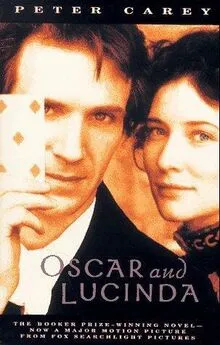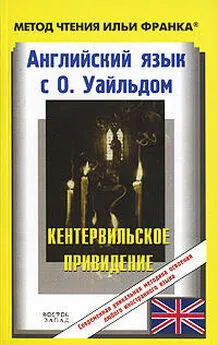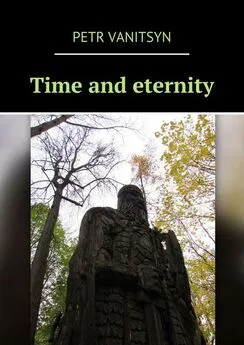Peter Carey - Oscar and Lucinda
- Название:Oscar and Lucinda
- Автор:
- Жанр:
- Издательство:Vintage Books
- Год:1988
- Город:New York
- ISBN:0-679-77750-4
- Рейтинг:
- Избранное:Добавить в избранное
-
Отзывы:
-
Ваша оценка:
Peter Carey - Oscar and Lucinda краткое содержание
The Booker Prize-winning novel-now a major motion picture from Fox Searchlight Pictures.
This sweeping, irrepressibly inventive novel, is a romance, but a romance of the sort that could only take place in nineteenth-century Australia. For only on that sprawling continent-a haven for misfits of both the animal and human kingdoms-could a nervous Anglican minister who gambles on the instructions of the Divine become allied with a teenaged heiress who buys a glassworks to help liberate her sex. And only the prodigious imagination of Peter Carey could implicate Oscar and Lucinda in a narrative of love and commerce, religion and colonialism, that culminates in a half-mad expedition to transport a glass church across the Outback.
Oscar and Lucinda - читать онлайн бесплатно полную версию (весь текст целиком)
Интервал:
Закладка:
First there had been her maternal grandmother, then the paternal grandfather. Her mother, a dressmaker, had been most particular as to the correct etiquette for mourning and had followed, as far as her intense curiosity could reveal it to her, the Royal Precedent. Thus there would be three months of deep mourning, an entombment so complete that neither hands nor face should be shown without their covering of black. The process back to life was taken in gradual stages, like a diver ascending from the deep, until, at six months, one could eat in a public place, in nine months be seen at the theatre, and at the end of a year one might cast off one's black and, with luck, be asked to dance the Grenadier Waltz.
She was eighteen, and still in mourning for her paternal grandfather when her father, also in mourning himself, went down with pneumonia. It was winter. She sat in the coal-sleepy room, and even while she nursed him, while she sat beside his bedside, lifted his heavy body to a sitting position so he might more easily breathe, and saw his face all blotched, lost, suddenly old, his eyes shut, his lips dry and swollen so they were the size of the black boy on the Church Missionary Society money box, even while she waited and wept and heard him gurgle and
Orphans
choke himself to death, she felt another grief, another despair, an anger, selfish perhaps but intensely felt none the less-that she would end up an old maid because she must now spend another year in mourning.
But in the end it had not been a year, for her mother-although strict on matters of etiquette-was also a practical woman. She did not wish to waste precious space in their trunk with clothes they would never use once they were in New South Wales.
The mother was a strong-willed woman. The emigration had been her idea. She had announced it without consultation. It was she who found the daughter a position as a governess at Boat Harbour. In her ignorance she had imagined a town like Bournemouth. It would be a healthy place, she said, and gay. She made their new clothes, scandalously bright, it seemed to her daughter, to suit this new location. She chose taffeta and "Peking" silks. They had boarded the Sounion in a style that elicited much admiration (from strangers-the family had been farewelled in Hammersmith). They wore, mother and daughter, dresses of the palest and prettiest colours, the daughter in peach, the mother in a moiré grey, but both of them in bright petticoats and Miriam's crinoline cage producing an effect like a trumpet flower you might imagine growing in exotic latitudes: once on board, of course, this finery was packed away, for they could afford no better than steerage, and it was in that very trunk, the same big wooden trunk, all bound around with black iron bands, that the dress had travelled in the little brig from Sydney, transferred to the whaler outside Boat Harbour, and which had floated to the shore when all those souls had drowned.
This was on Christmas Day in 1858. Miriam had been the only one of thirty passengers saved from drowning. Her left arm was broken, and never quite set right, but she was alive. Her whole trunk was delivered to the Trevis house, for it was there she was to be employed as a governess. And on her first morning Mrs Trevis filled her copper with black dye and put her lovely new clothes into the copper, one by one. Miriam felt sick in her heart, as sick about this blackness as anything else. She would never forget that moment. The peach dress, a fallen bloom in a copper of ink.
When the clothes were dyed and dried and ironed, she put them on. The black got into her skin. It was the humidity. There was nothing to be done about it any more than there was to be done about the sandflies, the mosquitoes, the tropical rains that flooded the river and took the stock floating away. She taught the children as best she could. There were few books to help her. '.n i,
.>..>-,^KJ-.,
W1
Oscar and Lucinda
There was dancing, of course, quite a lot of it, too. But it would not be possible for her to go. She wrote long letters to Mrs Carson, who ran the governess agency in London. They pretended to take a cheerful or optimistic line while exactly communicating her despair. She begged to be sent to a place where learning might be appreciated. She complained she was asked to set the fire, to sweep the house, to "muck in." She put this term in sarcastic inverted commas. Nowhere did she make a comment on the Trevises' class or education and yet, somehow, it was made clear that they were below her.
Miriam could not have known it, but all of Mrs Carson's life was dotted with letters like this. They irritated her, and although she would permit two or three of them, the fourth was likely to attract a strong rebuke.
In January 1862, a year of floods so great they would not be repeated until 1955 (floods George White and his cohorts on the council like to forget when they issue development permits) Miriam Mason was married to Johnny Chadwick by Dennis Hasset's predecessor, the one who was thrown into the Bellinger River. There is no parish register showing this marriage, but there is a photograph of Johnny Chadwick in the local museum. He is standing in front of a log hut which the Historical Society has decided was his schoolroom. In fact it was his house. He is surrounded by his pupils, and you will read, on the little typewritten note George White had Sellotaped on to the bottom of the photograph that he died as a result of snakebite in 1863. It does not say that the snake was enraged by being thrown around the school ground by the pupils. They had long sticks which they used to flick it through the air towards each other. Johnny Chadwick, it seems, had tried to kill the snake.
In any case, Miriam had to dye her clothes again and she went back to work for Mrs Trevis who, of course, did not remind her that she, Mrs Trevis, had cautioned her against ripping up her old mourning clothes for dusters.
But with, oh, what zest, she had, in her optimism, Tom up her black and did not care it was a waste. And she had got herself again her lovely fabrics, silks and taffetas sent up from Sydney, and made the long dresses which were cool and light, and she began to see the beauty of the place, the long slow sweep of the river, its wide green banks, the green ever widening, pressing in against the khaki of the bush, and Johnny Chadwick was very quiet, but handsome and gentle, and they would sit in front of their hut and he would read her Walter Scott by the light of a lantern while white ants hatched, swarmed, and died and she had been foolish enough not to see this as a poignant symbol of mortality.
W)
The Weeks before Christmas
She wrote again to Mrs Carson. Mrs Carson replied with what can only be described as a stiff note.
Thus when Dennis Hasset arrived in Boat harbour she observed him from her cage of deep mourning. She stood high on the veranda at the Trevis house at Fernmount. From the veranda you could see the river as it swept around the promontory below. Into this view came the Reverend Dennis Hasset, correctly dressed, a book in his lap, sitting on a barge surrounded by his personal effects.
And if I say that she began-there and then, without having said a word to him, or heard one from him either-to lay plans for him, it would be unfair to judge her harsh and scheming. It is important to look instead at her options.
The first was to continue as a governess, a poor governess for the Trevis family who, having no education themselves and no great respect for it, were inclined to view a governess as a labourer and, should she be found with anything as useless as a book, would be requested to do something more practical around the place. Thus she was not only depressed and unstimulated, but she was also continually weary.
The second possibility was marriage. Having had experience of the two states she was much disposed towards the latter. She therefore took the eyeglass from Mr Trevis's bedside and while her pupils pulled each other's hair, she spied the clergyman on the barge. This happened two weeks before Oscar played his famous game of cards at Randwick vicarage. 84
The Weeks before Christmas
The bet had a life. They contained it. It was a bee in a box, an itch in a place that could not be scratched; it was this-not their now continual games of penny poker, crib, solo, those shifting diversions which could not satisfy any of their locked-up passions but left the house scattered 333
Oscar and Lucinda
with whole (one penny) or half (ha'penny) matches-it was this bee in the box, the Big Bet, the glass bet, which gave the days their excruciating tension, their lovely current, the nights their lightness, expectation. They did not kiss or hold hands. The bet gave them a future which they stretched towards.
There was a drought all through the state of New South Wales, but the first week of December was balmy with teasing nor'easterlies lifting and falling like clean muslin pudding cloths on a clothes line. The nights were clear and bright-starred. Lucinda and Oscar took tea at the zinc table above the black water. The frangipani was at last sprouting leaves from its nubbly fingers. The jacaranda was in blossom. They watched the flying foxes wheel above them, like shadows of thoughts, things so indistinct they would not exist without two witnesses. They were joined together in their conspiracy. They ached-like lovers do-to share their secret, but they had no one to share it with. Lucinda could not tell Hasset any part of it. She could not bear to have a sensible objection. She felt guilty, just the same, about keeping the secret from him. Soon he would hear she shared a house with a defrocked priest and that she accompanied the same peculiar gentleman everywhere, even as far as the New Steyne Hotel in Manly where she had clumsily danced for the first time in her life. Lucinda wrote Dennis Hasset long, dull, detailed letters as if this steady drone would block out the secret whispers of her heart. These letters, of course, made Oscar anxious and jealous. He had no one to share his agony with except Wardley-Fish and Wardley-Fish was the subject of a scandal of his own and was incommunicado, passing through the Suez Canal, sunburnt, drunk, telling outrageous stories until he went too far and became IT, the passenger the others try to avoid sitting next to on the promenade.
Oscar was like a man in a fairy story who is granted his wishes. He was employed by Prince Rupert's Glassworks. He was a party to the manufacture of glass. He walked with Lucinda into the works on a Monday morning and saw the glass-rolling machine from Chance Brothers turn the great red rubbery sheets of glass, like pastry, off its shiny metal rollers. Lucinda was at his side, seized by fury and jubilation in equal parts. She thought: I must not come here with him again; all my passion is as cold as ice. She meant, of course, that he was accepted so easily where she could not be, that he walked in a way that he would be probably shocked to learn appeared proprietorial.
Oscar was not insensitive to Lucinda's feelings. And when she sought to involve Mr d'Abbs in the project he did little more than murmur
The Weeks before Christmas
around the edges of his doubt. It was then that he saw what fierce loyalty Lucinda had towards those she thought her allies. And it did not matter that Mr d'Abbs had proved himself incompetent in caring for the works or in other vital matters, she would consult him about the design of the glass church.
Читать дальшеИнтервал:
Закладка:









